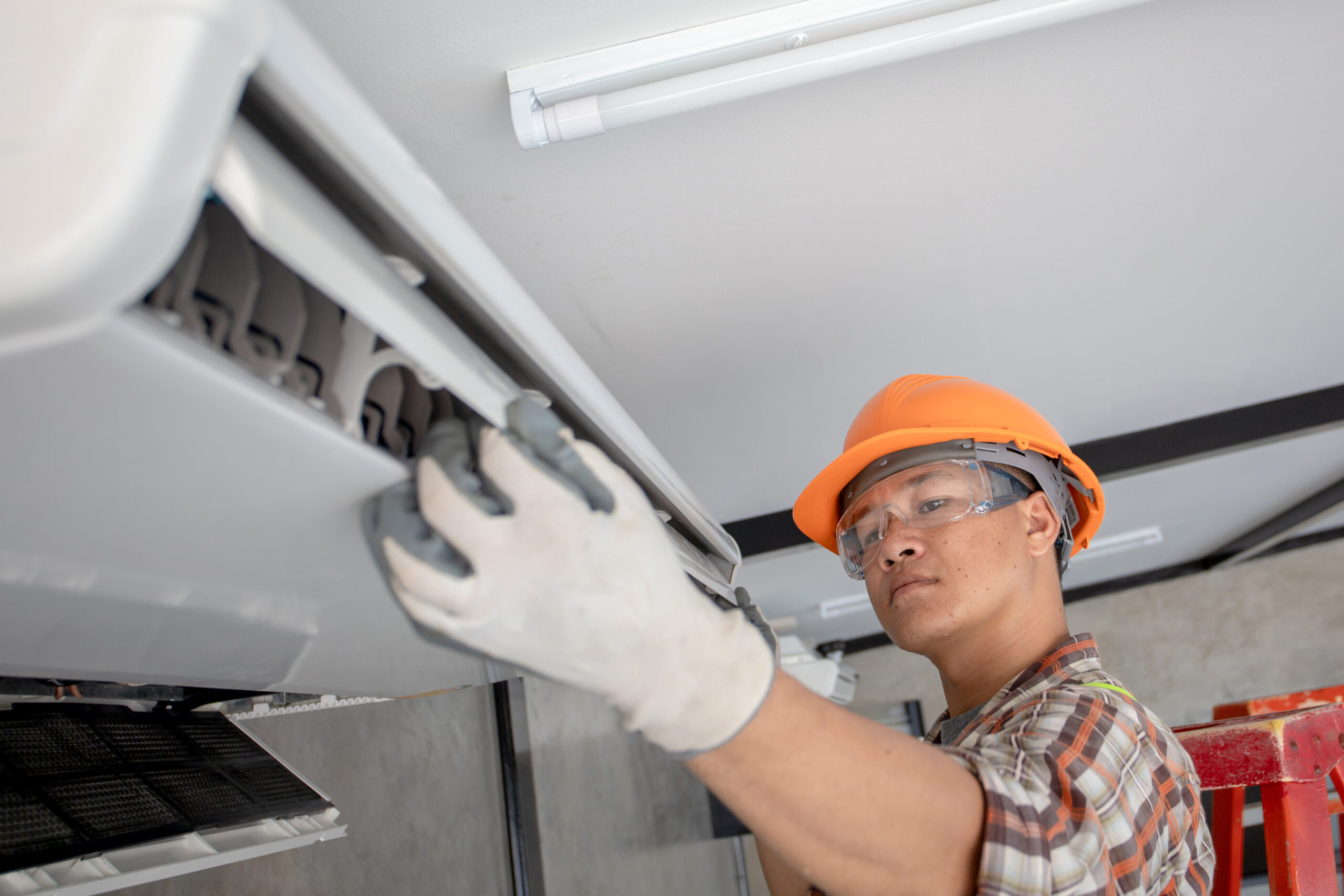
Air Conditioning Technician Repairing Air Conditioner and install new air conditioner. young Asia Repairing Air Conditioning concept
As the summer slowly makes itself known, you will start to notice the temperature rising. Like most people, you’ll likely be relying on your home’s HVAC system to keep cool. Here’s how to prevent your HVAC system from malfunctioning when you need it most.
Install a new HVAC Filter
Routinely replacing the HVAC filter is one of the most cost-effective ways to keep your unit performing at its best. When the filter becomes too dirty, it can cause the HVAC system to work harder to cool down your space. Not only will your unit experience greater wear and tear, but you may also encounter a more expensive energy bill. While it’s recommended to replace cheaper fiberglass filters every month, most pleated filters are rated to last for three months.
Schedule a Tune-Up
Before the weather really starts to heat up, it’s a good idea to schedule an HVAC tune-up. When performing a routine tune-up, the technician will first thoroughly inspect your unit for any developing problems. By catching issues early, your HVAC system will be less likely to experience a breakdown during the summer. It’s just as important for the technician to check your unit’s refrigerant levels. If your unit is low on refrigerant, you will soon experience cooling trouble.
Listen for Noise
A well-functioning HVAC system should run quietly. If you begin to hear any odd noises, there’s a good chance you need HVAC repair. While a banging sound can indicate a failing compressor, squealing often stems from a worn-out fan bearing. Replacing old parts can give your unit new life.
Give Your System a Break
When the weather is hot and humid, many people leave the AC on full blast throughout the day. Aside from noticeably increasing energy consumption, the extra stress placed on your system makes it more likely to fail. There are other ways to help keep your home cool. For starters, you should switch your ceiling fans to rotate in a counterclockwise direction. This produces a cooling effect, which helps eliminate the need for your HVAC system to run constantly.
Reduce Humidity
High humidity can make your home feel warmer than normal, which ultimately puts a greater demand on the HVAC system. This is why it’s so important to reduce indoor humidity levels. Whenever you decide to cook a meal, develop a habit of cracking a window. The increased circulation of dry air will help minimize moisture buildup. It’s also a good idea to run an exhaust fan while taking hot showers.
Don’t get stuck in a hot home this summer. Taking a few extra preventive measures will help prevent unexpected HVAC problems. You’ll appreciate the extra peace of mind.


